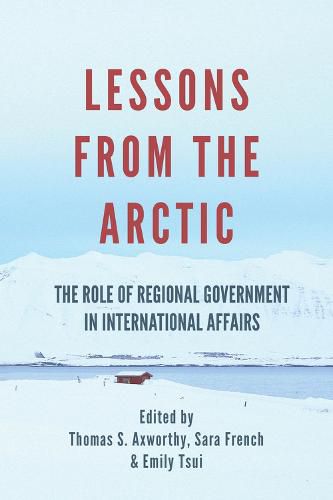Readings Newsletter
Become a Readings Member to make your shopping experience even easier.
Sign in or sign up for free!
You’re not far away from qualifying for FREE standard shipping within Australia
You’ve qualified for FREE standard shipping within Australia
The cart is loading…






The Arctic region is now a major concern not just for adjacent nation-states but also for many other countries. As the Arctic warms, its oceans and sea lanes are rapidly becoming key and high-profile factors in world politics. The powers at large are all jockeying for influence in this region – Russia, China, the United States of America, the Scandinavian countries, and Canada. Many other countries as diverse as Switzerland, Mongolia, and Turkey have sought observer status at the Arctic Council as an expression of their Arctic interests. The polar region and the Arctic agenda is now a vital issue in the shaping of global politics for many nations and it is likely to become more intense in the near future. At the forefront of any decisions made for the Arctic regions are municipalities, territorial and state governments, Indigenous organisations, and governments. While discussions of development and climate change consume the agenda of most competing interests, we must also play close attention to the subnational actors and governments from within the Arctic. International diplomacy may well affect these players very deeply. The Arctic Council is often regarded as the main platform for international Arctic diplomacy. Yet, these subnational players and regional governments remain the vital structural components of the region. Lessons from the Arctic: The Role of Regional Government in International Affairs is a collection of articles written by twenty-six leading and emerging scholars from across the circumpolar region. Each author assesses and explores the processes of regional governance in the Arctic from an interdisciplinary perspective. The topics include Indigenous internationalism, paradiplomacy, federalism, global institution-building, and more.
$9.00 standard shipping within Australia
FREE standard shipping within Australia for orders over $100.00
Express & International shipping calculated at checkout
The Arctic region is now a major concern not just for adjacent nation-states but also for many other countries. As the Arctic warms, its oceans and sea lanes are rapidly becoming key and high-profile factors in world politics. The powers at large are all jockeying for influence in this region – Russia, China, the United States of America, the Scandinavian countries, and Canada. Many other countries as diverse as Switzerland, Mongolia, and Turkey have sought observer status at the Arctic Council as an expression of their Arctic interests. The polar region and the Arctic agenda is now a vital issue in the shaping of global politics for many nations and it is likely to become more intense in the near future. At the forefront of any decisions made for the Arctic regions are municipalities, territorial and state governments, Indigenous organisations, and governments. While discussions of development and climate change consume the agenda of most competing interests, we must also play close attention to the subnational actors and governments from within the Arctic. International diplomacy may well affect these players very deeply. The Arctic Council is often regarded as the main platform for international Arctic diplomacy. Yet, these subnational players and regional governments remain the vital structural components of the region. Lessons from the Arctic: The Role of Regional Government in International Affairs is a collection of articles written by twenty-six leading and emerging scholars from across the circumpolar region. Each author assesses and explores the processes of regional governance in the Arctic from an interdisciplinary perspective. The topics include Indigenous internationalism, paradiplomacy, federalism, global institution-building, and more.